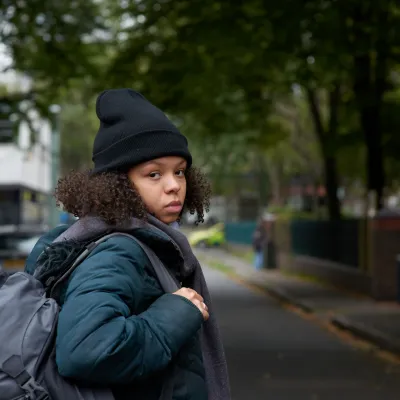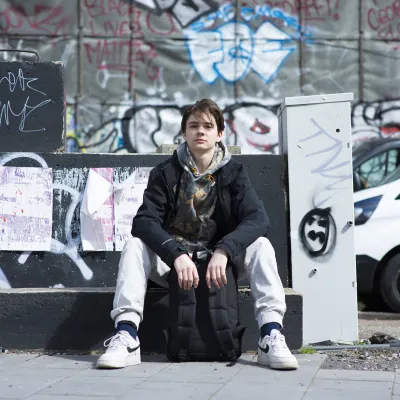The impact of Coronavirus, and measures taken in response, have already had huge impacts on young people. From employment and education to effects on health and wellbeing, there is already clear evidence that the lockdown has been especially difficult for many young people.
For young people going through homelessness, the lockdown has meant it is harder than ever to find a stable place to stay. Our new research looks at how councils and homelessness services had responded to the Covid-19 pandemic, and what needs to change to ensure that young people can access – and keep – stable accommodation beyond the lockdown.
Through surveying councils, looking at data from Centrepoint’s Helpline, and interviewing key stakeholders, we wanted to explore whether young people had been able to access the support they needed during this time.
Youth homelessness during Lockdown
We found that more than three in four councils surveyed (78 per cent) had seen increases in homelessness in their area since the start of the Covid-19 pandemic, with more than four in 10 reporting significant increases in people seeking help.
Many councils across the country highlighted that homelessness as a result of family breakdown had increased, as pressures and tensions boiled over. Being asked to leave somewhere to live by family or friends is the single biggest reason for youth homelessness, with almost half of the 110,000 young people seeking help in 2018/19 doing so for this reason.
Centrepoint’s Helpline has also seen a huge increase in the number of young people seeking help – with contacts increasing by almost 50 per cent since the beginning of lockdown. Again, the proportion of young people needing help due to family breakdown had gone up.
Most alarmingly, calls from young people sleeping rough and without anywhere to stay at all more than doubled during this period.
Centrepoint’s Helpline team had heard from young people who were unable to stay with friends or extended family members, because they were self-isolating or concerned about taking anyone in during the pandemic. As a result, the few options for young people facing homelessness were reduced even further.
For those young people needing to access support, the lockdown made this even more difficult than normal. Eight out of ten councils surveyed reported closing their face to face services, and although they could be contacted over the phone and online, our Helpline heard that many young people struggled to get through when at a time of crisis.
While many of the measures taken to support people sleeping rough had been successful, fewer than a quarter of councils (23 per cent) said that measures had gone far enough to help young people specifically. They highlighted the lack of age-specific emergency accommodation, a lack of support for families and limited housing options as barriers to finding accommodation for young people at this time.
Beyond the pandemic
In the longer term, without investment and support from the Government, there is a real risk that many more young people will finding themselves facing homelessness as a result of the Covid-19 pandemic.
Three quarters of the councils we spoke to think that the pandemic will lead to increased homelessness in the longer term.
While temporary measures had been effective in getting people off the streets and stopping evictions during the lockdown, many were worried that without long term changes people would still be facing homelessness and housing insecurity, and this situation would only get worse because of the pandemic.
However, councils reported that there were ways in which the Government could support them to help tackle homelessness during this time. 77 per cent thought investing more into housing benefit would make a difference, while 78 per cent called for more funding for homelessness services and prevention work.
The Coronavirus crisis has exposed many of the deep fault lines in British society, and has brought into sharp focus the insecurity in which millions of people in the UK are living – whether by working in precarious and unprotected employment, living in overcrowded housing or facing the threat of eviction brought on by a sudden loss of income.
However, the response to the crisis has also shown the strength of solidarity and compassion within communities and the dedication of millions of key workers and people providing support to their neighbours and friends.
It has also shown what can be achieved with the right combination of resources, coordination and political will, with the steps taken as part of the Everyone In scheme helping to ensure that thousands of vulnerable people were able to safely self-isolate.
This same energy must now be brought to tackling the longer-term emergency of homelessness. Without addressing the structural problems which led to thousands of people needing to be accommodated as a public health emergency - such as a severe lack of affordable accommodation, insecure and low-paid work, difficulties accessing services and a social security system which has become uncoupled from the real costs of living - there is a real risk that for too many, a return to normal will mean a return to the streets.
Stable, long-term accommodation and the opportunities to access employment, training and education will be critical to support both young people and help the UK to recover from the pandemic. By grasping these challenges now, the government can use this period as an opportunity to make much needed changes to help young people across the country to succeed.





